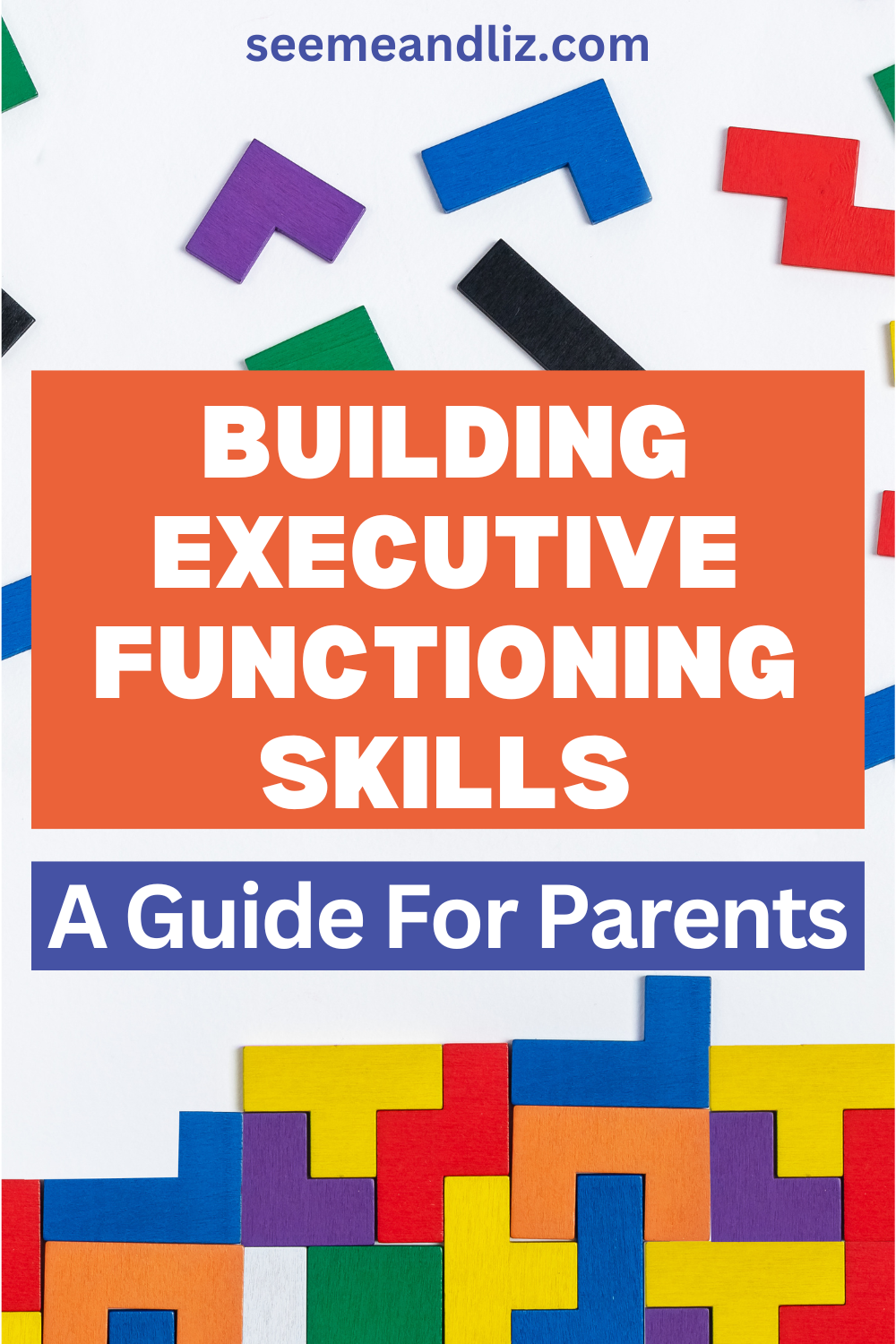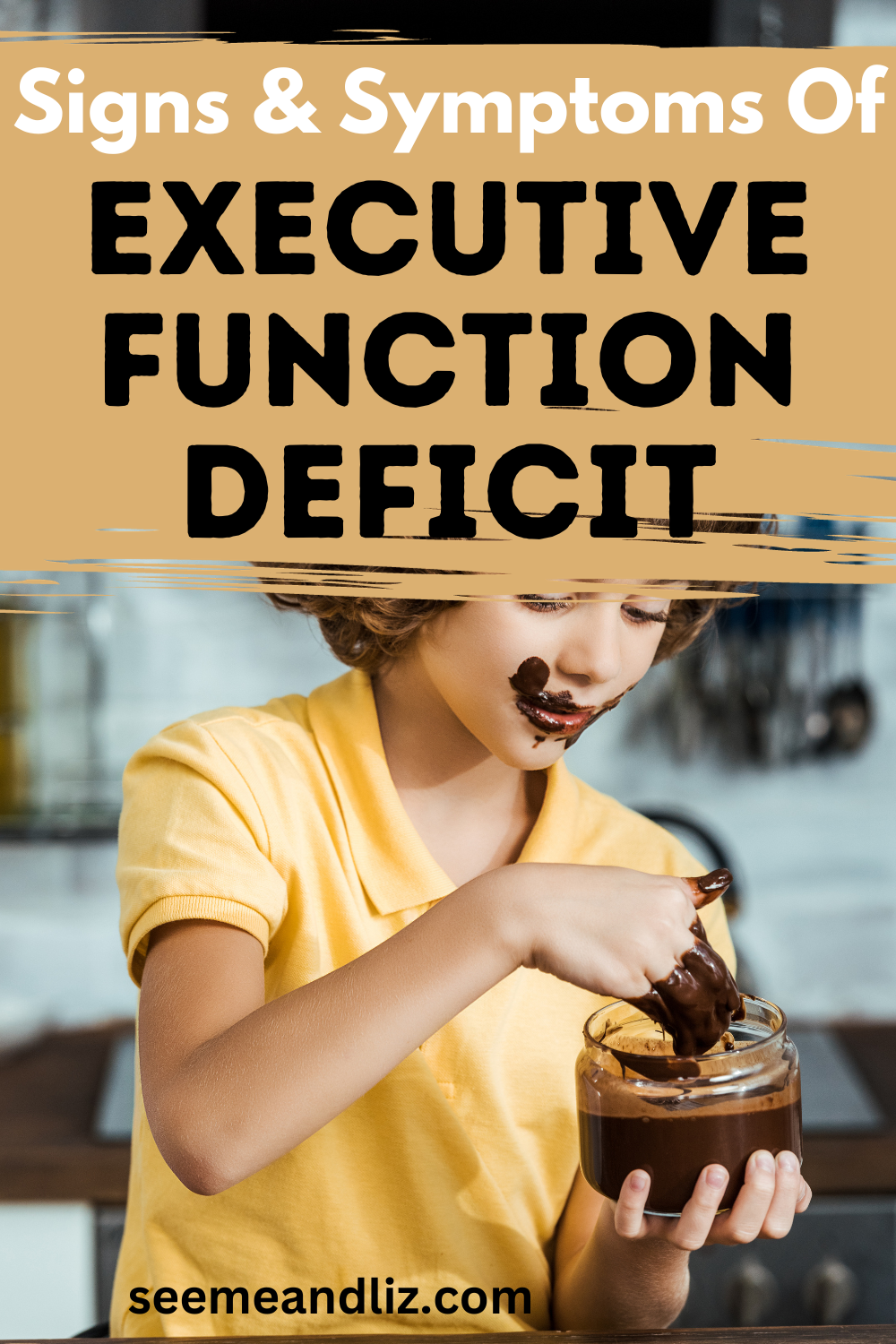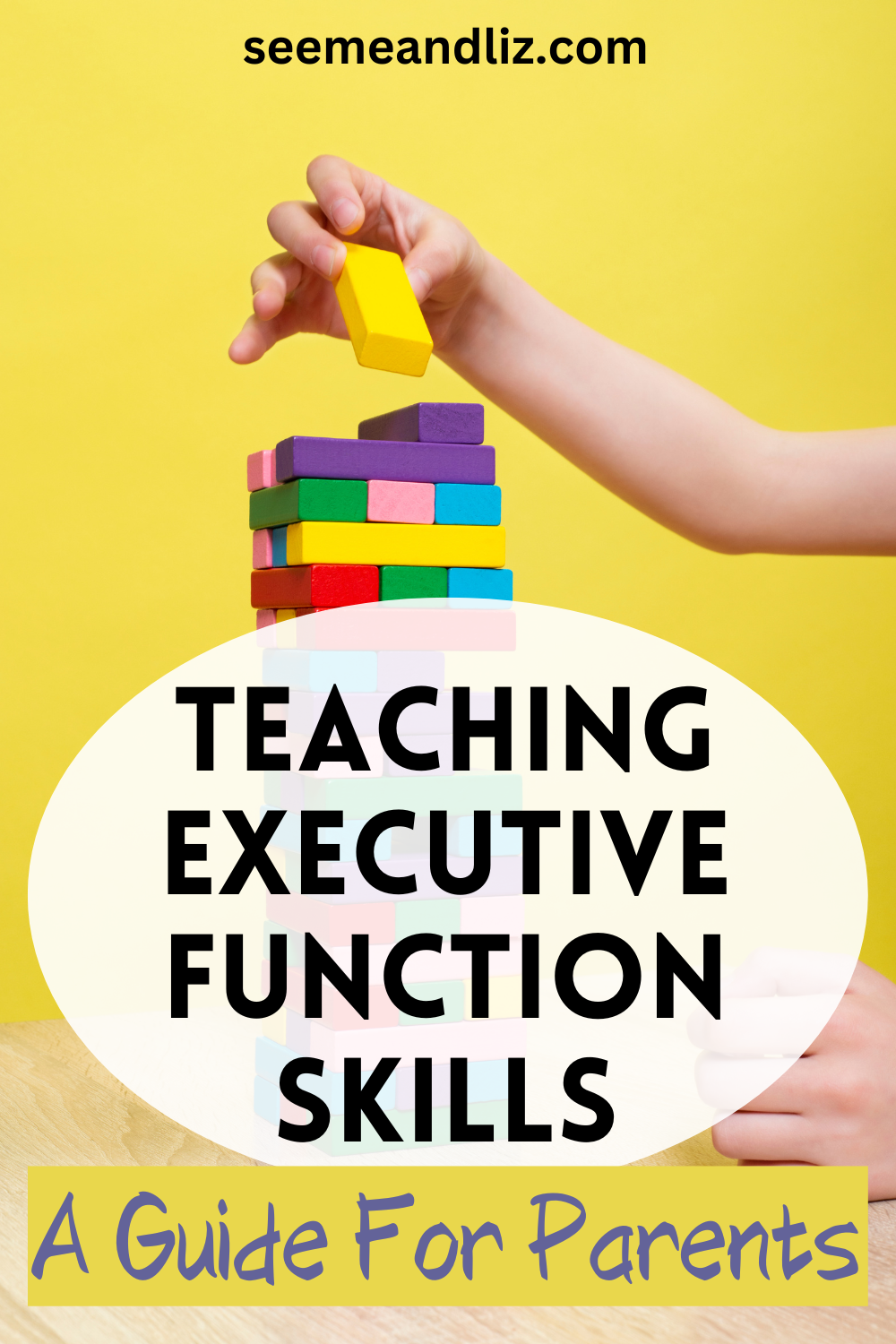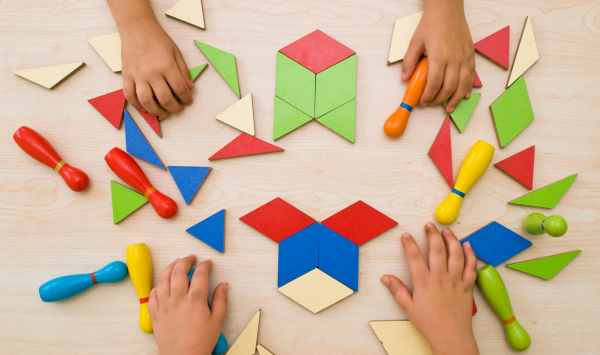Have you ever had one of those days where you watch your child and think, “Why are they acting this way?” You see them stand in the middle of their room, surrounded by tasks, looking like they’re completely lost in their own world. It’s a heart-tugging moment. You want to jump in, guide them, or even take over to make things easier.
But here’s the thing: our kids are growing and changing every day. Their brains are like little workshops, buzzing with activity, trying to figure out the world. And sometimes, it’s hard for us parents to understand what’s going on inside their little heads.
In this article, we will discuss executive functioning and how it affects child development and behavior.
Executive Functions: Charting the Mind’s Command Center
The brain’s frontal lobe directs our cognitive resources, guiding us through complex activities. Executive function skills include attention, memory management, planning, and time estimation. These skills help us regulate our emotions, be more self-aware, and identify potential risks.
Now, consider a child with underdeveloped executive functions. They might delay a school project, not out of laziness, but because they genuinely believe they can quickly finish it later.
They might have difficulty gauging time or persistently struggle with rules. When stress levels rise, these children might appear defiant or overly emotional. They might abandon tasks out of frustration or sheer boredom.
Imagine a three-year-old’s world. Everything’s an experiment. Tasks we consider straightforward, like getting dressed, can become monumental challenges. The first time they can’t get their arms through their sleeves may trigger a monumental meltdown. Why? Their brain, especially the frontal lobe, is still under construction.
Even teenagers, up to the age of 18 and beyond, can appear impulsive or overly emotional.
Remarkably, our brains continue developing until around 25 years of age! Preteens and teenagers may show different levels of maturity based on their daily physical and emotional conditions. The concern arises when behaviors don’t align with age expectations.
Difficulty tying shoes at age seven or consistently misjudging homework time at 18 could be signs of deeper challenges.

Detecting Executive Functioning Challenges in Your Child
Early detection of executive functioning challenges in children is crucial for their academic success, social relationships, and daily activities.
These challenges might involve trouble following instructions, organizing tasks, managing time, or impulsive behavior.
Some kids may show emotional outbursts in reaction to disruptions in their routine or some unforeseen circumstances.
Here is a list of signs and symptoms that could suggest an executive function deficit:
-
-
Impulsivity:
Children lacking executive function may act impulsively, neglecting to consider consequences. This could cause hasty decisions, thoughtless reactions, or neglecting the impact of their actions.
-
Difficulty with Multi-step Tasks:
For older children, tasks that require multiple steps can become overwhelming. They may have difficulty with planning and coordinating tasks, such as following instructions or completing multi-step projects.
-
Goal-Setting Struggles:
Setting, starting, and achieving both short and long-term goals might elude them. They may have difficulty breaking down a large task into manageable parts or understanding the sequential steps needed to reach a goal.
-
Heightened Emotional Sensitivity:
Kids may have unproportionally strong reactions to feedback, paying more attention to their emotions than the helpful information. This can manifest as shutting down, becoming defensive, or responding with heightened emotion.
-
Challenges with Verbal Instructions:
Often, they might require instructions to be repeated multiple times. Struggling to take notes or organize thoughts can lead to unfinished tasks.
-
Noticeable Disorganization:
Children with executive dysfunction often forget their things, miss deadlines, and struggle to keep their workspace clean, making them seem disorganized compared to their peers.
-
Procrastination:
Despite multiple reminders and impending deadlines, they may still put off starting or finishing tasks. It’s not simply laziness, but it is typically caused by issues with starting tasks, prioritizing, or managing time.
-
Rigid Thinking:
They could have a hard time adapting to changes or considering alternative viewpoints because of their inflexibility. Transitions or unexpected events can be particularly jarring.
-
Emotional Outbursts:
Overreactions, frequent tantrums, or being easily upset over minor issues are common. These might stem from their struggle to regulate and process emotions at the moment.
-
Difficulty with Self-awareness:
They might appear selfish or unaware of the needs and feelings of others. It is often not be because of insensitivity, but difficulties in perspective-taking or reading social cues.
-

The presence of some signs doesn’t always confirm an executive function disorder. Some of these behaviors are a natural part of many children’s development.
However, if you notice a consistent pattern or significant deviation from expected behavior, it may be necessary to seek a psychoeducational assessment.
The problem with relying on observations alone is that they can be influenced by subjective biases.
Psychoeducational assessments use tests, observations, and feedback to identify executive functioning deficits reliably. This comprehensive evaluation conducted by an educational psychologist evaluates a child’s cognitive, academic, and behavioral performance.
My son has had 2 of these assessments, one when he was in grade 4 and one again at the start of grade 9. These tests revealed so much information about how he learns and processes the world around. He was diagnosed with ADHD and definitely struggles with executive functioning, but he is making improvements.
The assessment can differentiate between executive function deficit disorder and other conditions, such as learning disabilities, ADHD, or emotional regulation issues.
It also helps to understand how a child learns best, allowing educators and parents to tailor educational strategies and accommodations to fit the child’s unique needs.
Digging Deeper: What Might Cause Delays in Executive Function Skills Development?
Understanding the possible causes of delays in executive function skill development is essential.
By pinpointing the origin, we can better tailor interventions and strategies to support affected children.
Several factors may contribute to these developmental delays:
-
-
-
-
Brain Structure and Development:
The frontal lobe, and particularly the prefrontal cortex, handles executive function skills. Any interruptions or atypical development in this region can affect executive functioning. The brain is most flexible during childhood, so any delays or abnormalities can affect these skills greatly.
-
Genetics:
There’s a hereditary component to executive function skills. Having family members with ADHD or other executive functioning challenges may increase the risk for children. Research studies of tweens show the impact of genetics on executive functions, particularly working memory and inhibitory control.
-
Traumatic Experiences:
Trauma, whether physical or emotional, can significantly affect a child’s executive function development. Severe stress or trauma can make children’s stress system overreact, affecting their ability to think and make decisions.
-
Prenatal Factors:
Alcohol, drugs, or certain infections during pregnancy can affect a baby’s brain development and cause executive function challenges. Premature birth or low birth weight can also affect the development of executive functions.
-
Environmental Factors:
Growing up in a chaotic or unpredictable environment can negatively impact a child’s executive function development. Consistency, routine, and a nurturing environment can support these skills, while their absence can hinder them.
-
Learning Disabilities:
Many children with learning disabilities may concurrently experience challenges with executive functions. Dyslexia, dyscalculia, dysgraphia and non-specific learning disorders are often accompanied by difficulties in organization, attention, and self-regulation.
-
Attention Disorders:
ADHD (Attention-Deficit/Hyperactivity Disorder) is a commonly known condition closely associated with executive function challenges.
Not all children with ADHD have executive function deficits, and not all children with executive function deficits have ADHD. However, the overlap is significant.
-
Mental Health Concerns:
Anxiety, depression, and other mood disorders can have a profound effect on executive functions. For instance, a child dealing with anxiety might become so preoccupied with their worries that it affects their working memory or attention span.
-
Limited Educational Opportunities:
A stimulating educational environment can nurture the development of executive functions. On the other hand, limited exposure to these stimuli could slow their progression.
-
Lack of Physical Activity:
Regular physical activity is not just vital for physical health, but cognitive development as well. Research suggests that maintaining a routine of physical activity enhances children’s executive function skills, while being inactive might cause delays.
-
Health Issues:
Chronic illnesses, sleep disorders, or even malnutrition can affect the development of executive functions. These health issues can divert the body’s resources away from cognitive development and impact brain function.
-
Medications and Therapies:
Certain medications, particularly those with cognitive or neurological side effects, can harm executive function skills. It’s important to monitor any potential side effects when a child starts a new medication and to speak to your doctor regarding any concerns.
-
-
-
In understanding these potential causes of executive dysfunction, it’s crucial to approach the subject with empathy and compassion.
Labeling or pigeonholing a child based on perceived delays can have unintended negative consequences. It’s important to get professional advice, thorough evaluations, and personalized support. Every child is unique, and understanding the root causes of their challenges will pave the way for more effective help.
Helping Young Children Develop Executive Functioning
Young children’s brains are constantly absorbing, adapting, and growing, so it’s crucial to keep that in mind. Their executive functioning is just taking shape.
Here’s how you can support its development:
-
-
-
-
Routine, Routine, Routine:
Just like how we feel secure knowing what comes next in our day, children thrive on routine. Consistency helps them predict what’s coming up and prepares their brain for it. Whether it’s bedtime rituals or a morning routine, these little patterns can make a big difference.
-
-
-
-
-
Play is Serious Business:
It might look like mere fun, but playtime is crucial for a child’s cognitive development. Games that involve taking turns, for example, can teach impulse control and patience. Memory games enhance working memory and attention, and pretend play can boost creativity and problem-solving.
-
-
-
-
-
Break Tasks into Steps:
A child might feel overwhelmed when asked to clean their room, as it can be a big task for their still developing brains. But breaking it down—first pick up the toys, then the books, next the clothes—can make it manageable and teach them to tackle tasks one step at a time.
-
-
-
-
-
Encourage Self-talk:
You might’ve heard your child talking to themselves while playing or doing a task. This isn’t just cute—it’s their way of guiding themselves through a task. Encourage this! It’s an excellent tool for improving focus and task management.
-
-
-
-
-
Practice Waiting:
The world is fast-paced, but sometimes it’s essential to wait. Basic activities, like waiting for a snack or taking turns, can help a child learn self-control and the idea of waiting for rewards.
-
-
-
-
-
Celebrate Effort, Not Just Results:
In a world that often values the outcome more than the journey, it’s crucial to cheer on the effort your child puts in. This not only builds their self-esteem but also fosters a growth mindset. They’ll learn that it’s okay to make mistakes as long as they’re trying and learning.
-
-
-
-
-
Use Teachable Moments:
Children are bound to make mistakes. Instead of reprimanding them instantly, use it as a teachable moment. Discuss what happened, why it happened, and how they can make a better choice next time.
-
-
-
-
-
Stay Connected:
Finally, keep those communication lines open. Regular check-ins about their day, their feelings, or even a random fun fact they learned can make them feel seen and supported. This connection can foster emotional regulation and a better understanding of their own feelings.
-
-
-
Remember, the foundation for executive functioning skills is formed during these early years. With your guidance and understanding, you can help set the stage for a future where they’re empowered to navigate life’s challenges with confidence.

Guiding Adolescents to Strengthen Their Executive Function Skills
Adolescence is a critical period for the development of executive function skills. These years are marked by significant cognitive, emotional, and physical growth, providing an ideal window to cultivate these essential life skills. With the right guidance, adolescents can learn to hone their abilities to plan, prioritize, organize, and self-regulate. Here’s a comprehensive approach to guiding adolescents in strengthening their executive function skills:
-
-
-
Establish Routines and Structures:
Adolescents find it difficult to juggle school, activities, and socializing. Establishing daily routines helps them manage time and reduce overwhelm.
-
-
-
-
-
Promote Self-awareness and Reflection:
Encourage adolescents to reflect on their actions and decisions. By understanding the consequences of their choices, they can adjust their behaviors. This helps with the development of metacognition, which is important for executive functioning.
-
-
-
-
-
Break Down Tasks:
Larger tasks can be daunting. Teach adolescents to break tasks into smaller, more manageable steps. This not only makes the task feel more achievable, but also trains their brains in organizational strategies.
-
-
-
-
-
Use Technology:
In today’s digital age, adolescents have a wealth of technological tools at their disposal. Introduce them to apps and digital platforms that assist with organization, such as calendar apps, task management tools, and study aids. However, ensure they also understand the potential distractions technology can present.
-
-
-
-
-
Practice Active Problem-solving:
Encourage adolescents to approach challenges as problems to be solved. By engaging in brainstorming, analyzing the pros and cons, and taking calculated action, they can strengthen their problem-solving skills.
-
-
-
-
-
Foster a Growth Mindset:
Adolescents should understand that skills, including executive functions, can be developed with effort and persistence. Emphasizing the importance of learning from mistakes that can improve resilience and adaptability.
-
-
-
-
-
Physical Activity and Mindfulness:
Encourage regular physical activity, which improves executive function skills. Likewise, mindfulness practices such as meditation can help enhance focus, attention, and emotional regulation.
-
-
-
-
-
Provide Opportunities for Independence:
Caregivers should resist the urge to intervene and let adolescents handle certain responsibilities. Giving them control over their study schedule and chores helps them develop real-world executive function skills.
-
-
-
-
-
Feedback and Positive Reinforcement:
Constructive feedback helps adolescents understand where they might need to adjust their strategies. Recognizing and praising their efforts and successes, no matter how small, can motivate them to continue working on these skills.
-
-
-
-
-
Encourage Social Interactions:
Group activities, such as team sports, clubs, or study projects, can foster several executive function skills. They require teamwork, compromise, planning, and time management, making them invaluable experiences.
-
-
-
-
-
Modeling and Role-playing:
Demonstrate good executive function skills in your actions. Adolescents often learn by observing those around them. Role-playing scenarios can help practice decision-making.
-
-
-
-
-
Seek External Support:
Sometimes adolescents may benefit from additional support, like tutoring, therapy, or executive function coaching. These professionals can provide tailored strategies and tools to help strengthen these skills.
-
-
-
-
-
Discuss Real-world Applications:
Connect the importance of executive function skills to real-world scenarios. Exploring how these skills are applied in different professions or situations can emphasize their value and relevance to everyday life.
-
-
-
-
-
Encourage Passion Projects:
Let adolescents pursue projects or hobbies they’re passionate about. It can boost their inner drive to plan, prioritize, and finish tasks.
-
-
Helping teenagers develop executive function skills takes time, empathy, and consistent work. These years are crucial for developing self-regulation, decision-making, and organizational skills.
To help our children develop these skills, we need to guide them while respecting their growing independence.
Celebrate their accomplishments, give them the tools they require, and observe as they develop stronger executive function abilities.

